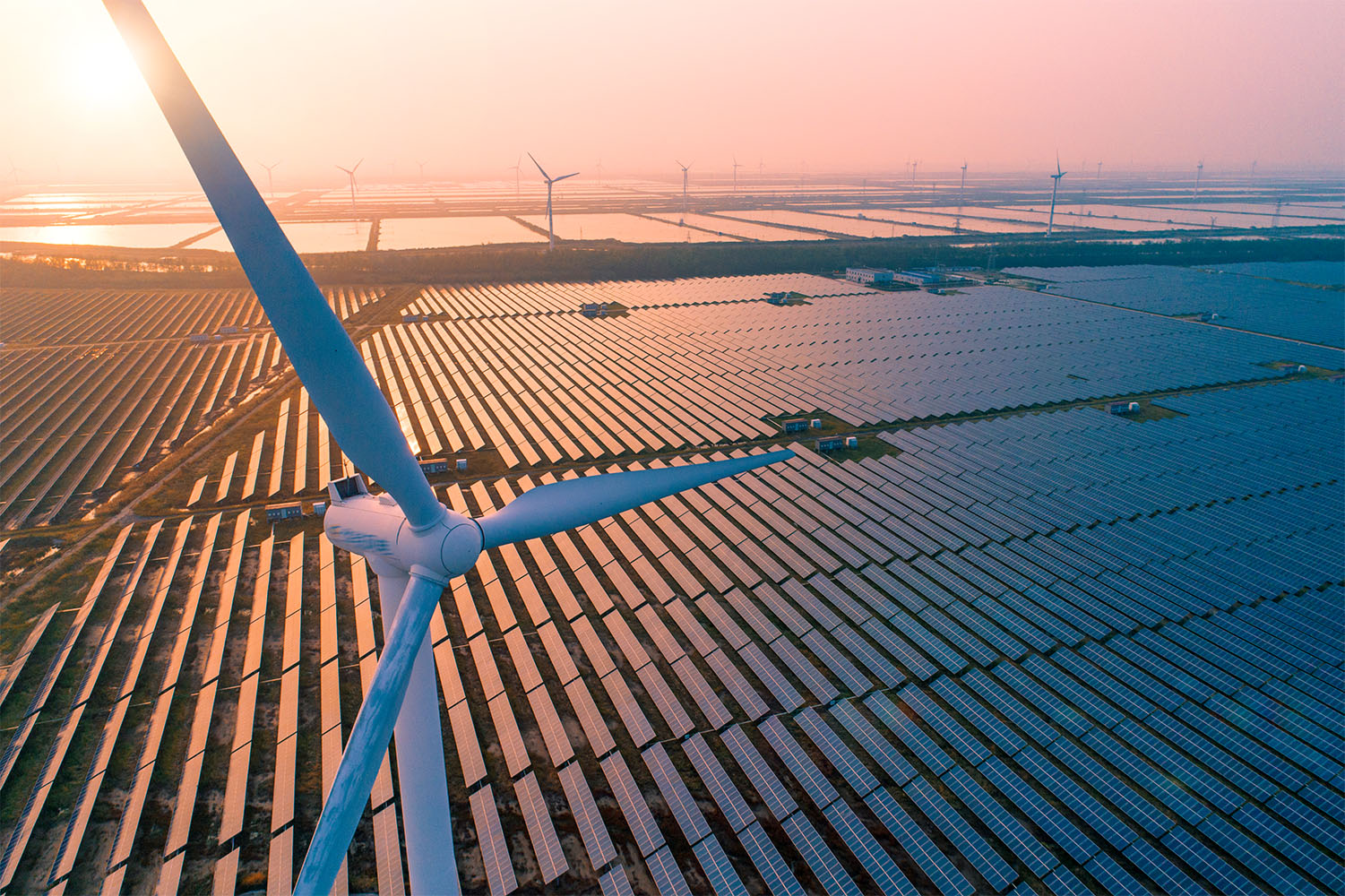COP27 | Sharm-el-Sheikh climate pledges pave way for final week of global talks
Published on 14th November 2022
What happened in the first week of the UN climate change summit and what is on the agenda ahead?

World leaders during the first week of COP27 in Egypt made a range of pledges to decarbonise global shipping and other industries, provide green financing to African countries, reverse deforestation, and finance the adaptation of agriculture against a backdrop of increasingly urgent climate reports from the United Nations.
António Guterres, the UN secretary general, opened the conference stating that the world is on the "highway to climate change hell" and that "we are in the fight of our lives, and we are losing".
As the second week of the conference gets underway, the focus of the international discussions will range across gender equality, climate empowerment and education, biodiversity and the climate, the energy transition and what comes after COP27.
Week one highlights
Governments presented a 12-month action plan to decarbonise power, road transport, steel, hydrogen and agriculture. Part of the Breakthrough Agenda, the plan contains 25 collaborative actions to help increase accessibility to clean technologies. Actions outlined include developing common definitions for low-emission and near-zero emission steel, hydrogen and sustainable batteries in order to direct investment and ensure credibility.
- The prime minister of Norway and the US special envoy for climate launched the Green Shipping Challenge. The shipping industry has been challenged to produce zero-emission fuels, deploy zero-emissions vessels and participate in the declaration of zero-emissions shipping by 2050. Many countries have agreed to participate in this challenge as well as several companies,.
- The Forests and Climate Leaders' Partnership was launched to unite governments, businesses and communities to focus on assessing progress on halting and reversing deforestation each year up until 2030. Mark Carney, the former governor of the Bank of England, called on members of the Glasgow Financial Alliance for Net Zero (GFANZ) to use the $135trn of assets they manage to tackle deforestation and encourage investment in nature-based solutions.
- The launch of the Sharm-El-Sheikh Adaptation Agenda, which aims to protect billions of people from climate risks, emerged after a day of tensions between polluting states in the developed world and nations that are suffering the consequences of climate change. Shehbaz Sharif, the prime minister of Pakistan, highlighted the disproportionate impact that climate change is having on his country despite its relatively low emissions. The agenda set outs a to-do list which includes moving towards sustainable agricultural practices and supporting indigenous communities with nature-based solutions to assist with water security.
- UK Export Finance is to become the first export credit agency in the world to pause debt service payments for low-income countries in the event of climate shocks and natural disasters. The UK initiative will allow countries impacted by climate-related disasters to defer debt repayments and allow them to redistribute the funds for disaster relief. This will be achieved by including climate resilient debt clauses within loan agreements. Rishi Sunak also announced that the UK government will triple its funding for climate adaptation to £1.5bn in 2025 from £500mn provided in 2019.
- The US announced the Energy Transitional Accelerator, a plan to drive private investment into energy transition plans in developing countries. The plan aims to create a framework for how independently verified carbon credits could be sold to businesses that are looking to use them to advance their own climate goals.
- The COP27 Presidency and the United Nations Economic Commission for Africa launched the "Reducing the Cost of Green and Sustainable Borrowing for Africa" initiative to provide African nations with sustainable financial help through green and sustainable bonds.
- The launch of the Food and Agriculture for Sustainable Transformation programme was announced to improve the quantity and quality of financial contributions that will be needed to transform agriculture and food systems by 2030.
Week two's agenda
- Oceans and Land Day. Today (14 November), delegates held sessions to discuss local adaptation knowledge to scale up nature-based solutions, the fostering of climate action in agriculture and a global farmers market.
- Action for Climate Empowerment and Civil Society Day. Discussions will take place on youth empowerment, climate adaptation, gender equality and the energy transition in the hope this will drive inclusive climate action. The hope is that awareness will be raised through education, training, public participation and broadening access to information.
- Paris Committee on Capacity-Building Day. Discussions will take place on the committee's focus area for 2021 of "building capacity to facilitate coherent implementation of nationally determined contributions in the context of national development plans", allowing stakeholders to discuss experiences and lessons learned.
- Capacity-Building Energy Transition for Climate Action. Hosted by the International Renewable Agency, the discussions will offer a platform to share experiences and best practices to support the building of institutional capacity for nationally determined contributions.
- COP27 and beyond. Discussions will take place on what needs to be done once COP27 is over and will look ahead to COP28.
Osborne Clarke comment
The decisions that are made at a COP climate change conference can seem esoteric but they do translate to on-the-ground changes for the economy as a whole as well as individual private sector actors. For example, the Breakthrough Agenda announcements outlined the intention to set a common date to phase out petrol and diesel cars and vehicles by 2040 globally and 2035 in leading markets. The list of participating countries will be announced on 17 November which has been dubbed "Solutions Day".
Also of note in the first week was the launch of the US-backed Energy Transition Accelerator. The role of voluntary carbon markets and carbon credits is subject to controversy as the market is largely unregulated and there is doubt over whether credits actually remove or avoid emissions. And there are concerns that this plan will be a distraction from work already being done on Just Transition Partnerships to fund developing countries through a mix of grants, concessional loans and risk-sharing instruments as well as overlap with the move to create a global carbon market under article 6 of the Paris Agreement. Nevertheless, a US-backed carbon credit plan is likely to be of huge interest to corporates who look to ways to meet their own climate goals.
This article was written with the assistance of Saskia Zant-Boer and Hannah Wooderson, Trainee Solicitors.





